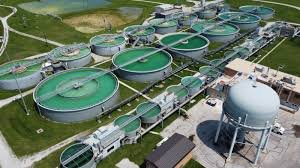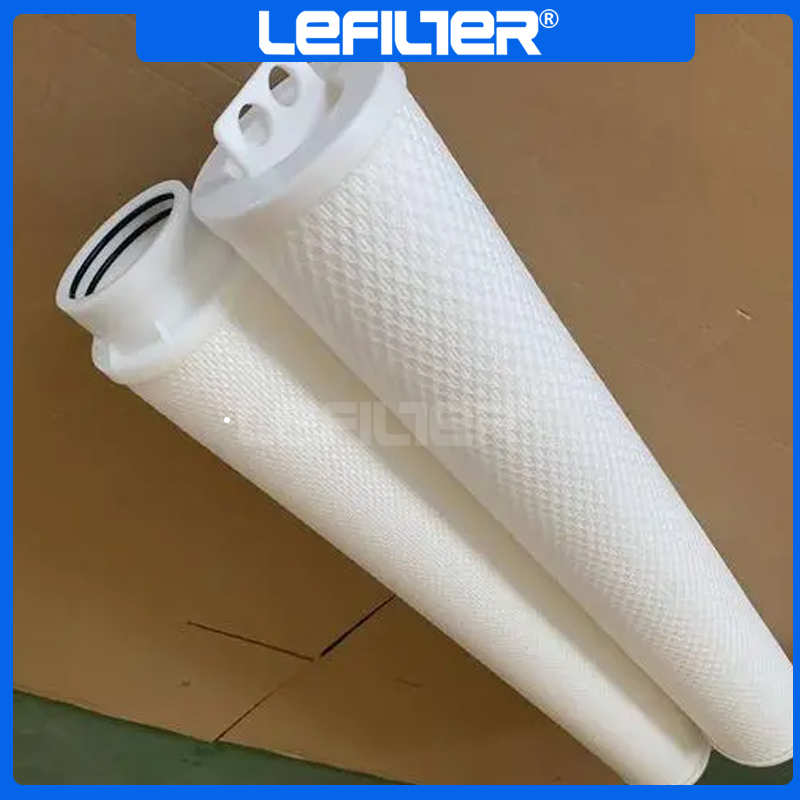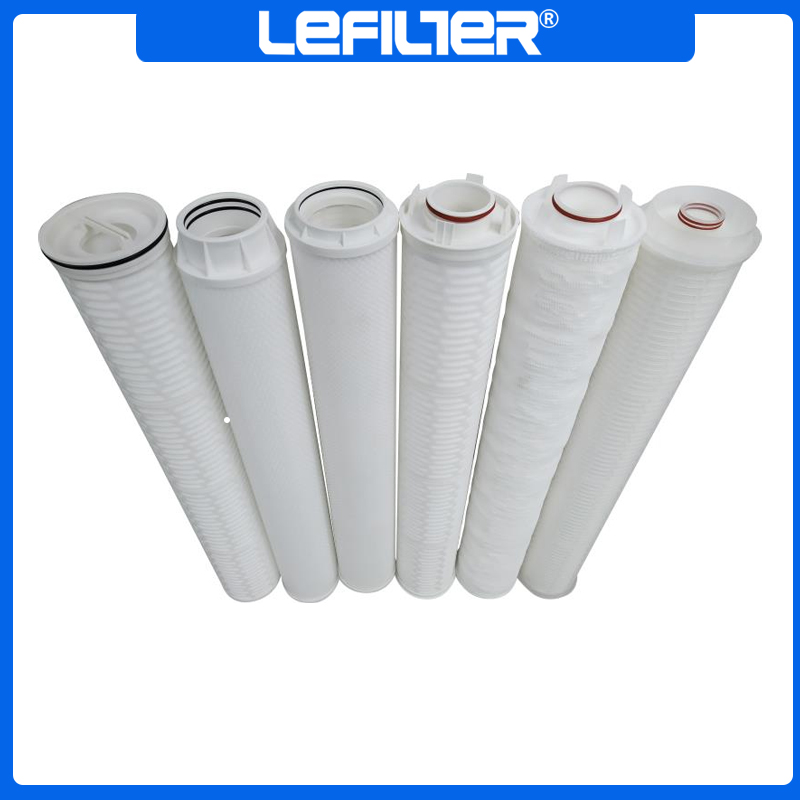Cartridge Filter Housing in Water Treatment
DATE:2024-10-19 Number of views: 1 Source:dongwenhui
Water treatment is a critical process for ensuring safe, clean, and potable water for both municipal and industrial applications. With increasing concerns about water quality and availability, efficient filtration systems have become essential. Cartridge filter housings are integral components in water purification systems, effectively removing contaminants to meet health and safety standards. We will delve into the significance of cartridge filter housings in water treatment, exploring their functions, applications, and benefits.

Understanding Cartridge Filter Housing
Cartridge filter housing is a vessel designed to hold filter cartridges that purify water by removing particulates, sediment, and other impurities. These housings can vary in size and configuration to accommodate different filtration needs, making them suitable for both municipal water treatment facilities and industrial applications.
The materials used for cartridge filter housings, such as stainless steel or high-density polyethylene, are selected for their durability and resistance to corrosion. The housing is engineered to handle varying pressure levels and flow rates, making it adaptable to diverse water treatment processes.
The Importance of Water Purification
Water purification is essential for protecting public health and ensuring that water meets quality standards set by regulatory bodies. Contaminants in water can originate from natural sources, industrial discharges, agricultural runoff, and aging infrastructure.
The presence of harmful substances, such as bacteria, viruses, heavy metals, and chemicals, can pose significant health risks. Effective water treatment processes help mitigate these risks by ensuring that drinking water is safe and suitable for consumption. Cartridge filter housings play a crucial role in this by enabling efficient filtration, thus enhancing the overall quality of treated water.

Applications in Municipal Water Treatment
Municipal water treatment facilities use cartridge filter housings in various stages of the purification process. Before water is distributed to households and businesses, it typically undergoes several filtration steps to remove impurities and pathogens.
In the initial filtration phase, cartridge filters can remove larger particles and sediments, such as sand and silt. This not only improves water clarity but also protects downstream equipment, such as pumps and membranes, from wear and clogging.
In later stages, finer filtration through cartridge housings ensures the removal of smaller contaminants, such as bacteria and chemicals, providing a final safeguard before the water reaches consumers. By maintaining high filtration standards, municipal facilities help ensure that the water supply remains safe and clean.
Industrial Water Treatment Applications
In addition to municipal use, cartridge filter housings are extensively employed in industrial water treatment applications. Industries such as food and beverage, pharmaceuticals, and power generation require high-quality water for their operations.
For instance, in the food and beverage industry, water must meet strict hygiene standards. Cartridge filters remove impurities that could affect taste, quality, and safety. Similarly, in pharmaceutical manufacturing, water must be free of contaminants to ensure the efficacy and safety of products.
In industrial cooling systems, cartridge filter housings help maintain water quality by removing contaminants that can cause fouling and corrosion. This ensures the efficient operation of cooling towers and heat exchangers, preventing costly downtime and repairs.

Contaminant Removal and Filtration Efficiency
One of the key benefits of cartridge filter housings is their ability to efficiently remove a wide range of contaminants. Depending on the type of filter cartridge used, these systems can target specific impurities, including:
Sediment and Particulates: Larger particles such as dirt, sand, and rust can be effectively removed in the initial filtration stages.
Bacteria and Viruses: Microfiltration and ultrafiltration cartridges can eliminate harmful microorganisms, ensuring safe drinking water.
Chemicals and Heavy Metals: Activated carbon filters and specialized cartridges can adsorb chemicals and heavy metals, improving water quality.
The effectiveness of cartridge filter housings in contaminant removal makes them a vital component in both municipal and industrial water treatment processes.
Cost-Effectiveness and Maintenance
Implementing cartridge filter housings can be a cost-effective solution for water treatment. While there is an initial investment in the filtration system, the long-term savings from reduced equipment maintenance and increased operational efficiency can be significant.
Cartridge filters are designed for easy replacement, allowing for straightforward maintenance without extensive downtime. Regular monitoring of filter performance and timely replacement of cartridges ensure consistent water quality and system efficiency.

Environmental Considerations
With growing concerns about water scarcity and environmental sustainability, effective water treatment has become more important than ever. Cartridge filter housings contribute to this effort by ensuring that water is purified and reused whenever possible.
By removing contaminants, these systems help protect water sources from pollution and ensure that treated water can be safely returned to the environment. This aligns with sustainable practices in various industries and contributes to responsible water management.
Future Trends in Water Treatment
The water treatment industry is continuously evolving, driven by advancements in technology and increasing demand for high-quality water. Future trends include the development of more efficient filtration technologies, such as nanofiltration and advanced membrane systems.
Cartridge filter housings are likely to play an essential role in these developments, as they can be adapted to incorporate new filtration technologies. The ongoing focus on sustainability will also drive innovations in materials and designs, making filtration systems even more efficient and environmentally friendly.

Conclusion
Cartridge filter housings are indispensable in the water treatment sector, playing a vital role in ensuring the purity and safety of municipal and industrial water supplies. By efficiently removing contaminants, these systems enhance water quality, protect equipment, and contribute to public health and environmental sustainability. As technology continues to advance, the importance of effective filtration solutions will only grow, ensuring that safe drinking water remains available for all.
FAQ
What is a cartridge filter housing?
A cartridge filter housing is a container that holds filter cartridges designed to remove contaminants from water in various treatment processes.Why is water purification important?
Water purification is essential for removing harmful contaminants, ensuring public health, and providing safe drinking water.What types of contaminants can cartridge filters remove?
Cartridge filters can remove sediments, bacteria, viruses, chemicals, heavy metals, and other impurities from water.How often should filter cartridges be replaced?
Replacement frequency depends on water quality and usage but typically occurs based on pressure drops or manufacturer recommendations.Can cartridge filter housings be used for industrial applications?
Yes, cartridge filter housings are widely used in industrial water treatment for sectors such as food and beverage, pharmaceuticals, and manufacturing.What materials are cartridge filter housings made from?
Cartridge filter housings are commonly made from materials like stainless steel or high-density polyethylene for durability and resistance to corrosion.How do cartridge filters enhance equipment lifespan?
By removing contaminants that can cause wear and tear, cartridge filters help protect pumps, valves, and other equipment from damage.What is the environmental benefit of using cartridge filter housings?
Effective filtration protects water sources from pollution and supports responsible water management practices, contributing to environmental sustainability.

Industry Solutions
Pure Water /Ultra Pure Water System


